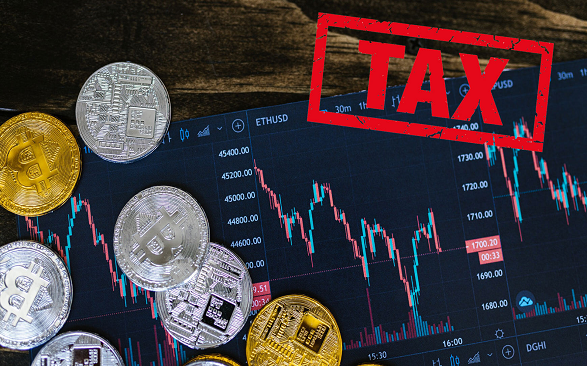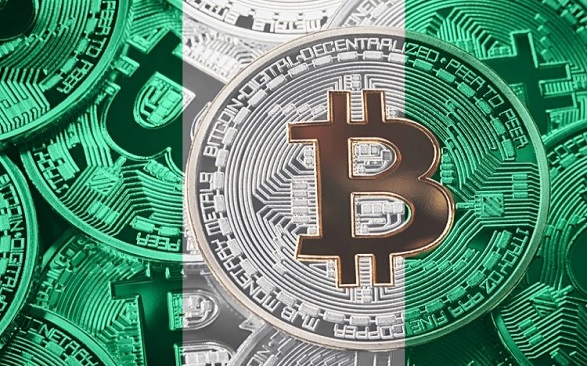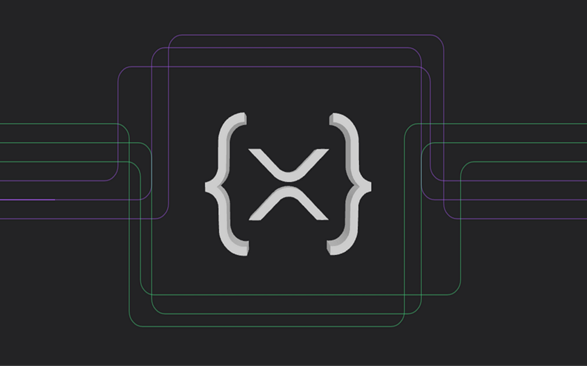Following the recent announcement by KuCoin, a leading cryptocurrency exchange, to start charging its Nigerian users 7.5% value-added tax (VAT) on the transaction fees for all crypto transactions on its platform, the Federal Inland Revenue Service (FIRS) has commended KuCoin for complying with VAT in Nigeria.
Responding to an enquiry, as reported by the Punch, Dare Adekanmbi, Special Adviser on Media to the FIRS chairman, maintained that “By the decision to inform its clients that VAT will henceforth be charged on transactions on its platform, KuCoin has demonstrated readiness to comply with the extant tax laws in Nigeria and this should be commended.”
Mr. Adekanmbi, referring generally to all corporate organizations operating in Nigeria, expressed satisfaction about the readiness of corporate citizens to pay tax without being necessarily pressured to do so. In his words, “We at FIRS are glad that corporate organizations are showing readiness to comply with the laws of the country as far as revenue collection is concerned. This is what a responsible corporate body should do without being prompted or press-ganged.”
“The FIRS chairman would always say that the agency is not a law enforcement body that should be running after companies with horsewhip before they pay their taxes. Don’t also forget that the Nigerian market is so huge and these crypto coys are interested in business in the most populous Black nation,” Mr. Adekanmbi added.
The FIRS spokesperson also said that considering the recent action the FIRS took against Binance—apparently—it is good to see others trying to be compliant. “With our recent action against one of them, it is pleasing that others who want to expand their businesses or want to enter the country newly have taken a cue from that action.”
It was only recently that the FIRS dropped its tax-evasion charges on Binance’s two executives, Tigran Gambaryan and Nadeem Anjarwalla, leaving the Binance entity as the only defendant.
KuCoin’s announcement and the ensuing confusion
On Tuesday, KuCoin had announced through its X platform that starting Monday 8 July 2024, it would start charging its customers VAT on transaction fees. VAT in Nigeria, which is one of the lowest in Africa, is presently at the rate of 7.5%. According to KuCoin’s announcement:
“We are writing to inform you of an important regulatory update that impacts our users in the Republic of Nigeria. Starting from July 8, 2024, we will begin collecting a Value-Added Tax (VAT) at a rate of 7.5 per cent on transaction fees in each trade for users whose KYC information is registered in Nigeria.”
KuCoins’s announcement has been greeted with mixed reactions from the members of the public, including KuCoin users and the general crypto community:
Read Also: SEC Nigeria finally issues framework for VASPs.
Industry Stakeholders React
While some observers welcomed the development as they see it as signaling that the Nigerian government now fully recognizes and has effectively legalized cryptocurrencies in the country, others believe that taxing cryptocurrencies at a time cryptocurrency transactions are more or less criminalized in the country going by the actions of the CBN, law enforcement agencies, and other relevant government agencies is unjustifiable. Some industry stakeholders shared their thoughts with CAB.
Reacting to the development as a welcomed one, Adedeji Owonibi, Founder/COO at Convexity and Senior Partner, A&D Forensics, stated on his LinkedIn page: “Seems like Christmas is over for Nigeria centralized cryptocurrency exchange users as the Federal [Government] of Nigeria wants its cut via VAT payment to the FIRS. Expect this from all exchanges operating in Nigeria going forward, this is a natural flow, let’s embrace the change and be good corporate citizens.”
With a view to seeking clarity concerning the imposition of VAT on crypto trading and ensuring accountability and transparency however, Lucky Uwakwe, Chairman of the Blockchain Industry Coordinating Committee of Nigeria (BICCoN), has raised a list of questions for the attention of all relevant stakeholders, including the FIRS:
“First, on collection, reporting, and remittance, how does the Nigerian government know that the number of Nigerian users as stated by KuCoin is true? How will the Nigerian users get proof that the VAT charged gets to the government revenue purse? Also, how does KuCoin remit the collected 7.5% VAT considering that the transaction is a crypto transaction, not naira?”
“Second, since the Nigerian government through the CBN does not presently permit crypto-related transactions via bank accounts, is it justifiable to impose tax on this nature of transaction? Or will the CBN finally decide to permit banks and other financial institutions to facilitate crypto-related transactions with their bank accounts considering that Nigeria would now be making a 7.5% revenue from every transaction fee on KuCoin crypto-trading exchange platform?”
Although in December 2023 the CBN lifted the crypto restriction in Nigeria’s banking and financial system, this was based on certain conditions being met, one of which is the mandatory obtaining of a VASPs license from the SEC. At the time of writing, SEC has not started issuing licenses to VASPs in Nigeria. The SEC however introduced its Accelerated Regulatory Incubation Program (ARIP) which is expected to close this month.
Chris Ani, in a Twitter Space hosted by Nairametrics, expressed his displeasure with the Nigerian government’s approach to the crypto industry so far, bemoaning the failure of the government to properly regulate the sector based on the principles of due process and the rule of law. He emphasized that it was important for the government to properly classify crypto in order to determine what tax applies and who regulates what.
Also, Mr. Ani criticized the clampdowns in the nascent industry, raising concerns about how the often disjointed and uncoordinated actions of the Nigerian government, including between the CBN and the SEC over the years, have only effectively and unduly demonized crypto innovations. “We do not trust our system here in Nigeria. And you will not blame us”, he said. Mr. Ani buttressed his point by pointing out that no matter how anti-crypto the Biden administration is, the U.S government cannot just wake up, take somebody in the crypto industry, and lock him [or her] up without due process. He also cited how the U.S SEC, in compliance with the rule of law following a court ruling, approved Bitcoin exchange-traded funds (ETFs) in the U.S, regardless of the fact that the U.S SEC did not wish to approve it. Mr. Ani contrasted this system with the Nigerian system whereby “the SEC can tell you crypto is legal; EFCC says it is illegal. If you are locked up, who will bring you out? In 2021, the court declared that the circular [issued] by Godwin Emefiele was illegal, did he obey it? No. So there is law in Nigeria and there is the feeling of those in government.”
Read also: Finally, ‘crypto ban’ in Nigeria lifted by the CBN
The Nigerian Conundrum KuCoin and Other Crypto Exchanges Face
Till date, KuCoin, as well as a number of other crypto exchanges in Nigeria, have their websites currently blacklisted by the Nigerian government. Since March 2024, these websites have remained inaccessible in Nigeria’s cyberspace.
Besides, although the FIRS does not seem to have “prompted or press-ganged” KuCoin to charge VAT on its Nigerian users, KuCoin made news recently when it announced, amid the ongoing clampdown on cryptocurrency platforms by the Nigerian government, that it was deactivating its peer-to-peer (P2P) function for Nigerian users and delisting the Nigerian naira from its platform from 15 June 2024. “The KuCoin team is committed to resolving this matter swiftly and efficiently,’’ it assured.
Apparently, KuCoin was trying to avoid any issues with the Nigerian government which started clamping down on crypto exchanges operating in the country over alleged currency manipulation on their platforms, particularly P2P trading involving crypto-to-Naira and Naira-to-crypto transactions.
First, with alleged links to illegal activities such as currency manipulation, money laundering, and tax evasion, the Office of the Security Adviser declared cryptocurrency a national security issue in the country.
Second, the Central Bank of Nigeria (CBN) instructed banks and FinTechs to close bank accounts connected with cryptocurrency transactions and immediately report such accounts to the authorities for further action.
Similarly, the Economic and Financial Crimes Commission (EFCC) has also been freezing, through the courts, thousands of bank accounts involved in cryptocurrency trading.
Lastly, the Securities and Exchanges Commission (SEC), through the Director-General, Emomotimi Agama, in a recent forum with industry stakeholders, alleged that the naira was being manipulated on crypto P2P platforms, resulting in the depreciation of the naira.
Read also: Group Urges Nigerian Regulators to Rethink Approach to VASPs
Crypto Tax Regime in Nigeria
While Nigeria has always had a value-added tax legislation that charges a rate of tax on qualified goods and services, it was not clear whether this VAT applied to VASPs due to the Nigerian government’s anti-crypto stance over the years.
It was in May 2023 that Nigeria eventually introduced capital gains tax on profits generated from digital-asset investments by virtue of the provisions of the Finance Act 2023. The Finance Act 2023 retroactively came into force 1 May 2023. Capital gains tax is 10% in Nigeria. However, till date, the FIRS has not issued any guidelines on how digital assets owners who dispose of their digital assets are to pay their capital gains tax.
At the time of writing, the FIRS had yet to release an official statement on the KuCoin VAT matter. Nigerian users, crypto platforms, and industry stakeholders hope that the FIRS or other relevant authority will issue a statement soon on the crypto tax regime in the country, considering recent developments.
Read Also: Clampdowns, Crackdowns, and Shutdowns in Crypto Town: Responsible regulation is what Nigeria needs.
Discover more from Crypto Asset Buyer
Subscribe to get the latest posts sent to your email.





